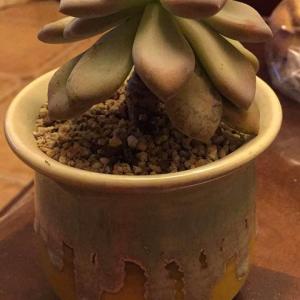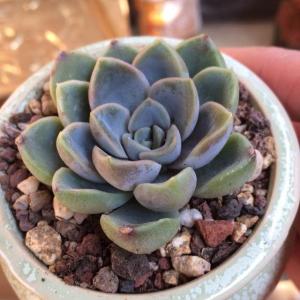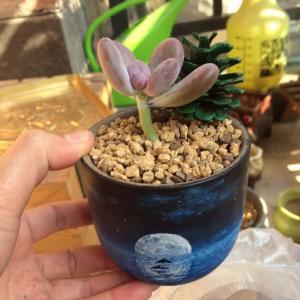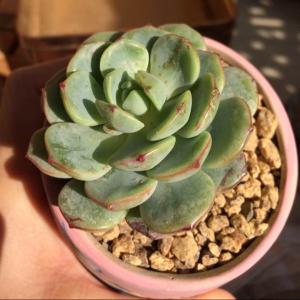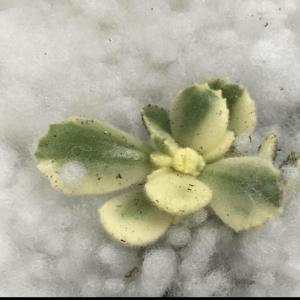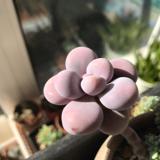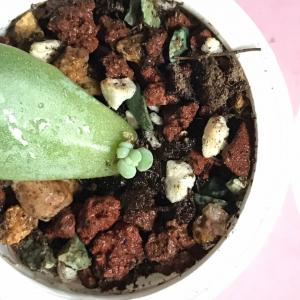Succulent Hauz
2016年12月27日

This topsy turvy has black spots for the last 2 weeks so I am goig to uproot today and replant her. Hopefull she recovers soon
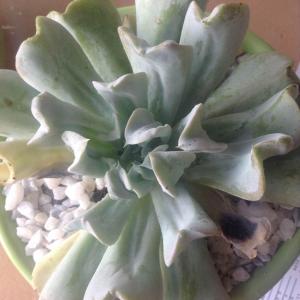

1
0
lrgarden:will be
文章
Rainbow
2016年12月27日

How to Recognize Orchid Roots and Orchid Spikes?
1.If you look very closely, you will see a “mitten shape” indicative of spikes.
2.The new root is growing down, the new spike is growing up!


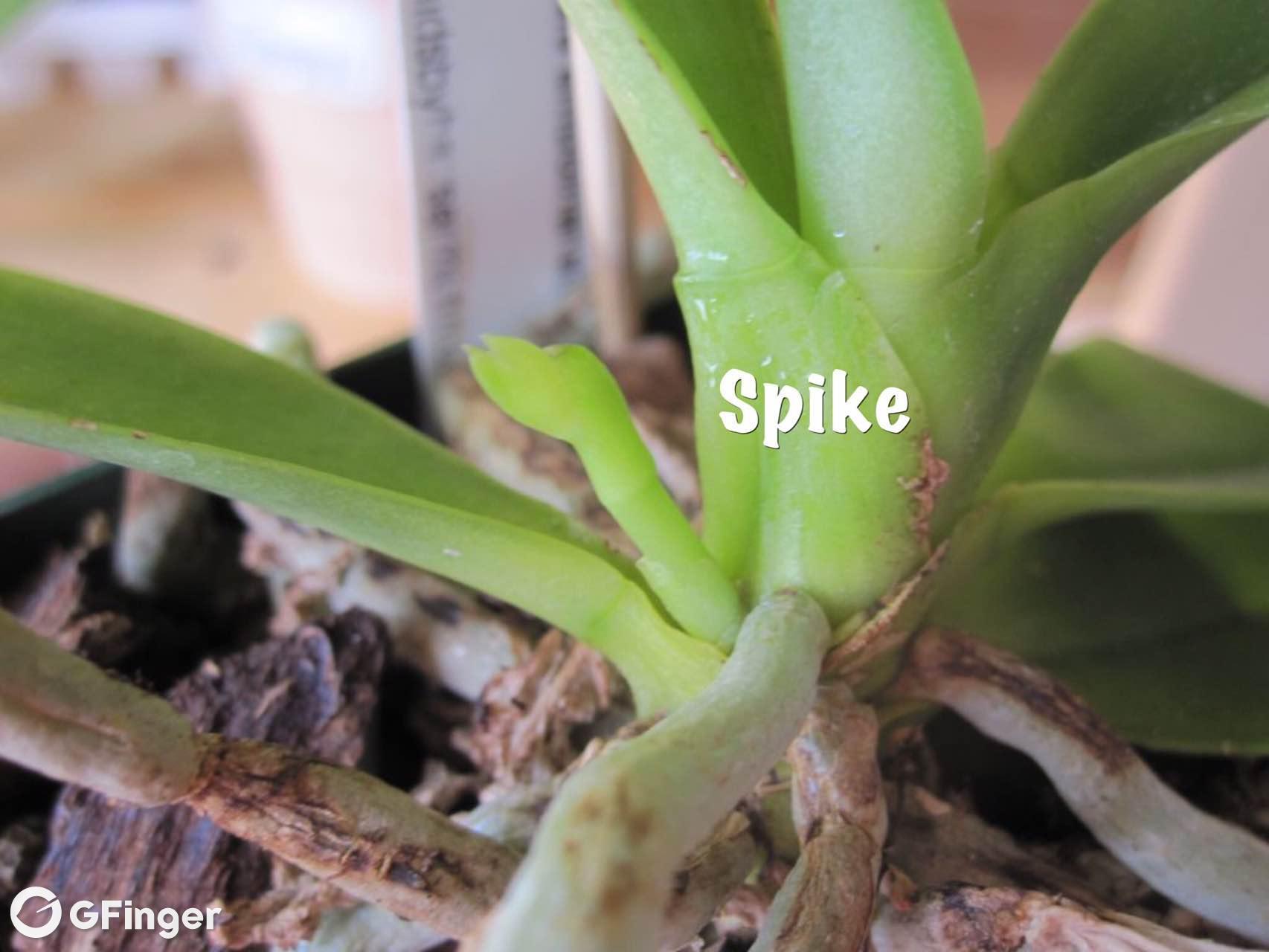





1.If you look very closely, you will see a “mitten shape” indicative of spikes.
2.The new root is growing down, the new spike is growing up!









3
0
文章
Erin
2016年12月26日

#growing-fruit-tips
DON’TS
1. Don’t water from above. Doing so encourages water born pathogens and spreads disease.
2. Don’t Overcrowd. Tomato seedlings need plenty of room to grow and will be stunted if they are over crowded. The same is true for mature plants. The size of a mature tomato plant is about 3 feet in diameter, so don’t plant young plants a foot apart.
3. Don’t forget tomato cages. While a tall stake will work okay, tomato plants can get very large and will benefit from having a tomato cage around them to keep sprawling stems off the ground.
4. Don’t wait too long to stake. I place my stakes in at the time that I plant the seedlings. I won’t damage the roots if I do this and the stems will be ready to tie up as the plant grows.
5. Don’t forget that critters like tomatoes too! If you have followed my blog, you will know of my exploits with the squirrels. Nothing is worse than seeing a dozen half ripe tomatoes on the ground with a bite out of each one. See my tips for dealing with squirrels. Hint…they don’t like cayenne pepper!
6. Don’t over-fertilize. Doing so will often result in bushy tomato plants with few flowers and flowers are what makes tomatoes later.
7. Don’t go for seedlings with flowers. You may think this will give you a head start on the growing season but the opposite is the case. Go for strong root systems and healthy looking stems. The flowers will come soon enough. (The same goes for flowering plants – why buy those already in flower? Enjoy them in your garden, not at the garden center!)
8. Don’t plant too early. Tomatoes are best if the soil temperature is consistently above 50º F outside. And make sure to measure the temp down a ways into the soil. 6 inches doesn’t sound like a lot, but think of where the roots are!
9. Don’t be impatient. The sweetest tomatoes are those that grow on the vine as long as possible. Don’t be in a hurry to take them off too early. If any fall off the vine, see my tips for ripening green tomatoes.
10. Don’t panic at the end of the season. If you have plants left and a frost is threatening at season end, pull up the whole plant, tomatoes and all and hang upside down in a garage or basement. The fruit will continue to ripen.
11. Don’t store tomatoes in the fridge. Doing so will spoil the taste and take away much of the sweetness that you are looking for. See this tip for sweet tomatoes.
Sun-ripened tomatoes deliver the taste of summer in every bite all summer long. Plant just a few healthy plants and you will ensure the production of buckets of this delicious fruit.
DON’TS
1. Don’t water from above. Doing so encourages water born pathogens and spreads disease.
2. Don’t Overcrowd. Tomato seedlings need plenty of room to grow and will be stunted if they are over crowded. The same is true for mature plants. The size of a mature tomato plant is about 3 feet in diameter, so don’t plant young plants a foot apart.
3. Don’t forget tomato cages. While a tall stake will work okay, tomato plants can get very large and will benefit from having a tomato cage around them to keep sprawling stems off the ground.
4. Don’t wait too long to stake. I place my stakes in at the time that I plant the seedlings. I won’t damage the roots if I do this and the stems will be ready to tie up as the plant grows.
5. Don’t forget that critters like tomatoes too! If you have followed my blog, you will know of my exploits with the squirrels. Nothing is worse than seeing a dozen half ripe tomatoes on the ground with a bite out of each one. See my tips for dealing with squirrels. Hint…they don’t like cayenne pepper!
6. Don’t over-fertilize. Doing so will often result in bushy tomato plants with few flowers and flowers are what makes tomatoes later.
7. Don’t go for seedlings with flowers. You may think this will give you a head start on the growing season but the opposite is the case. Go for strong root systems and healthy looking stems. The flowers will come soon enough. (The same goes for flowering plants – why buy those already in flower? Enjoy them in your garden, not at the garden center!)
8. Don’t plant too early. Tomatoes are best if the soil temperature is consistently above 50º F outside. And make sure to measure the temp down a ways into the soil. 6 inches doesn’t sound like a lot, but think of where the roots are!
9. Don’t be impatient. The sweetest tomatoes are those that grow on the vine as long as possible. Don’t be in a hurry to take them off too early. If any fall off the vine, see my tips for ripening green tomatoes.
10. Don’t panic at the end of the season. If you have plants left and a frost is threatening at season end, pull up the whole plant, tomatoes and all and hang upside down in a garage or basement. The fruit will continue to ripen.
11. Don’t store tomatoes in the fridge. Doing so will spoil the taste and take away much of the sweetness that you are looking for. See this tip for sweet tomatoes.
Sun-ripened tomatoes deliver the taste of summer in every bite all summer long. Plant just a few healthy plants and you will ensure the production of buckets of this delicious fruit.
2
0
文章
Erin
2016年12月26日

#growing-fruit-tips
DOS
1.Do provide plenty of sunlight. Tomato plants need sunlight and lots of it. They need about 10 hours of direct sunlight a day during the summer (and 10-14 hours of bright diffused light a day as seedlings.)
2.Do start with healthy soil. A well amended soil is a must. I like to add a scoop of compost to every hole that I dig for any plant, and tomatoes are no exception. Soil that is full of rich compost is the secret weapon to any tomato grower and organic material is the best. There is just on chemical substitute for well good, old fashioned compost.
3.Do plant seedlings deeply. Tomato plants do best with a healthy root system. I like to choose a tall plant and pull of some of the lower leaves and plant it deeply into the hole. Roots will form along the planted stem and this will make for a very healthy plant.<img src="1000062739_24273_1482734228.jpg">
4.Do know your soil type. Tomatoes like soil that will hold water but not make them too soggy. The wrong soil type an cause all sorts of problems from flower drop, blossom end rot and split fruit.
5.Do remove lower leaves. These are the first leaves to grow on your plant and they are the easiest ones to develop fungus and other problems. As they plant grows, they also get the least amount of light ans circulation so they are more vulnerable to disease. Removing them also keeps them out of reach of the water.
6.Do Water Deeply from the roots. Tomato plants love water and they like a deep watering. A soaker hose works best for tomato plants. (affiliate link) Also see my tutorial for a soda bottle drip feeder here.
7.Do stake your plants. Indeterminate tomato plants can grow to 10 feet or more and definitely need some staking. Even determinate plants will get to 3 feet. If you don’t stake, the weight of fruit may break your stems.<img src="1000062740_24273_1482734228.jpg">
8.Do Mulch. While we are on the topic of watering, be sure to add mulch. Bring it to a few inches from the stem, right over a soaker hose. This conserves the water and helps to prevent soil born pathogens from getting on to the leaves.
9.Do pinch suckers. Small suckers will grow at each leaf axil. This can weaken the plant and won’t bear fruit. Pinch these out to encourage great plant growth.<img src="1000062741_24273_1482734229.jpg">
10.Do rotate your crop. If you plant your tomatoes in the same spot each year, you encourage soil borne pests and diseases to take hold. Move the area where you plant to another spot in your garden every three years or so.
11.Do choose a spot with good air circulation. Making sure there is plenty of air around the plants keeps the risk of many diseases at bay.
12.Do watch out for caterpillars. Horn worm caterpillars can devastate a tomato crop. Be on the look out and remove if you find them.
13.Do plant again. If you live in a sunny growing zone, be sure to practice succession planting. Add another crop a few weeks after you plant the first one to ensure luscious tomatoes all summer long.
DOS
1.Do provide plenty of sunlight. Tomato plants need sunlight and lots of it. They need about 10 hours of direct sunlight a day during the summer (and 10-14 hours of bright diffused light a day as seedlings.)
2.Do start with healthy soil. A well amended soil is a must. I like to add a scoop of compost to every hole that I dig for any plant, and tomatoes are no exception. Soil that is full of rich compost is the secret weapon to any tomato grower and organic material is the best. There is just on chemical substitute for well good, old fashioned compost.
3.Do plant seedlings deeply. Tomato plants do best with a healthy root system. I like to choose a tall plant and pull of some of the lower leaves and plant it deeply into the hole. Roots will form along the planted stem and this will make for a very healthy plant.<img src="1000062739_24273_1482734228.jpg">
4.Do know your soil type. Tomatoes like soil that will hold water but not make them too soggy. The wrong soil type an cause all sorts of problems from flower drop, blossom end rot and split fruit.
5.Do remove lower leaves. These are the first leaves to grow on your plant and they are the easiest ones to develop fungus and other problems. As they plant grows, they also get the least amount of light ans circulation so they are more vulnerable to disease. Removing them also keeps them out of reach of the water.
6.Do Water Deeply from the roots. Tomato plants love water and they like a deep watering. A soaker hose works best for tomato plants. (affiliate link) Also see my tutorial for a soda bottle drip feeder here.
7.Do stake your plants. Indeterminate tomato plants can grow to 10 feet or more and definitely need some staking. Even determinate plants will get to 3 feet. If you don’t stake, the weight of fruit may break your stems.<img src="1000062740_24273_1482734228.jpg">
8.Do Mulch. While we are on the topic of watering, be sure to add mulch. Bring it to a few inches from the stem, right over a soaker hose. This conserves the water and helps to prevent soil born pathogens from getting on to the leaves.
9.Do pinch suckers. Small suckers will grow at each leaf axil. This can weaken the plant and won’t bear fruit. Pinch these out to encourage great plant growth.<img src="1000062741_24273_1482734229.jpg">
10.Do rotate your crop. If you plant your tomatoes in the same spot each year, you encourage soil borne pests and diseases to take hold. Move the area where you plant to another spot in your garden every three years or so.
11.Do choose a spot with good air circulation. Making sure there is plenty of air around the plants keeps the risk of many diseases at bay.
12.Do watch out for caterpillars. Horn worm caterpillars can devastate a tomato crop. Be on the look out and remove if you find them.
13.Do plant again. If you live in a sunny growing zone, be sure to practice succession planting. Add another crop a few weeks after you plant the first one to ensure luscious tomatoes all summer long.
3
0








